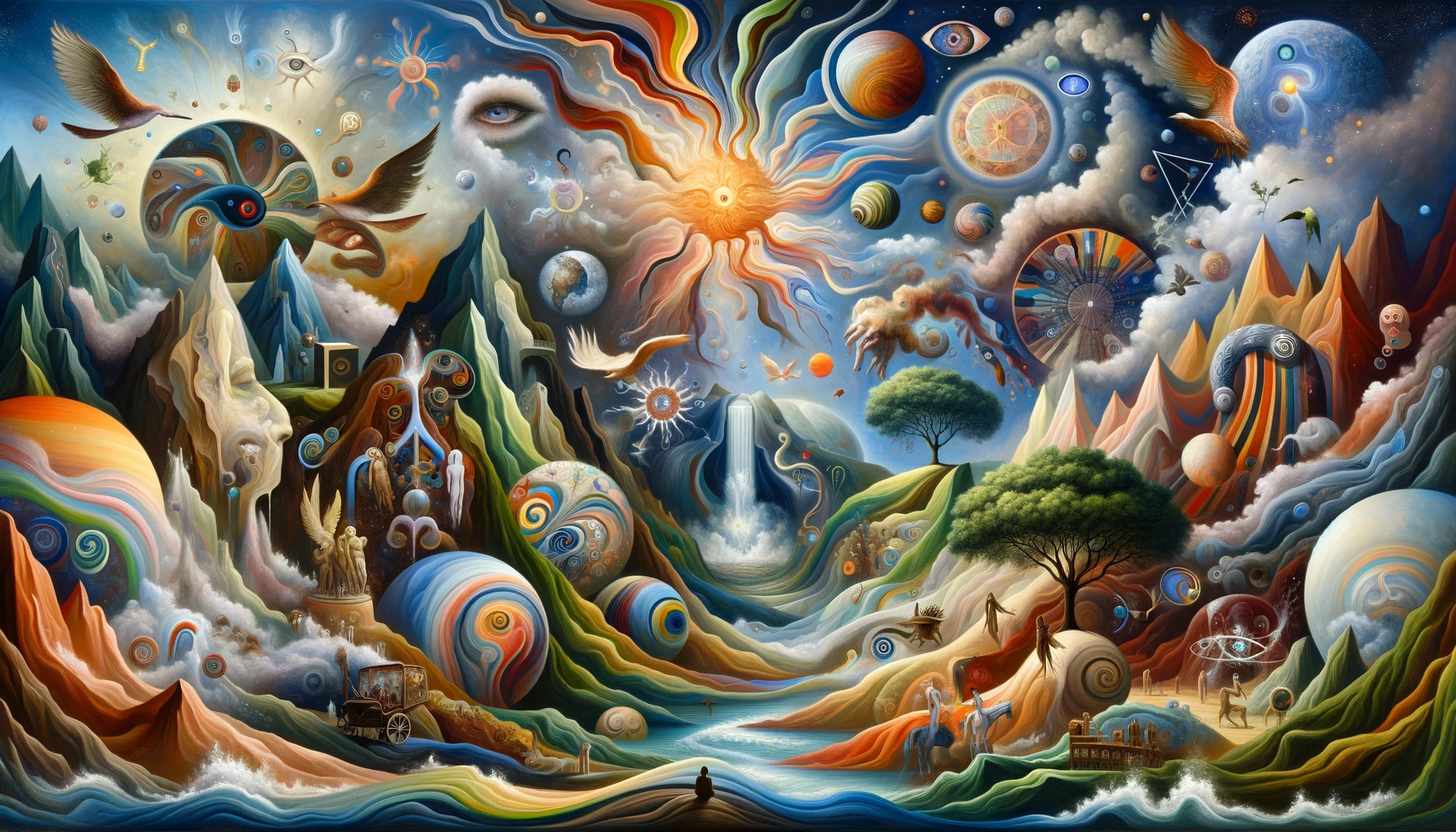Nearly every culture or religion in the world, created a story about the origins… the origin of the world, the origin of humanity, or how their group came into existence and plays a special part in this world. While they are often interpreted as attempts to explain how things came into existence, there is a much more compelling reason to read these stories: they talk about what is important in a culture and about the place of you – as an individual – inside the society and the bigger whole (be it the group, the world, the cosmos or another coherent unit). Stories take us on a journey, enter our mind and are easy to parse. Often, stories have multiple layers of meaning and different people can interpret them in different ways.
A modern story of origin
After multiple discussions with friends in different groups – especially with friends in the hackerspace, I took on the challenge to craft a story of origin that could inspire us today. I started prompting with ChatGPT and through a vast interaction of prompting and refining, I ended up with a text – generated by ChatGPT 4.0 and then tweaked to align with the discussions that we had. Furthermore, I used the same language model to generate images and reflective questions throughout the booklet. Thus, I ended up with a nice forty-page-long booklet about the story of Harmonia.
Some will be tempted to assign consciousness to language models. I want to stress that while an AI indeed concocted the texts, storyline and reflective moments… Every key step in the story had to be prompted, multiple iterations of every text got discarded and in the end it’s like every hero of the helpdesk can tell you: once you ask the right question, you already have half the answer.
Formatting and layout
For the formatting and layout, I used a LibreOffice Writer and a few SIL-licensed fonts, so all the artwork in the booklet is free to use. Formatting was not done in an automated way (unless you consider using styles as an automation).
The story of Harmonia
You can order the book in print through Lulu or download a PDF-version here.
The book is available under Creative Commons Attribution NoDerivs.

Leave a Reply